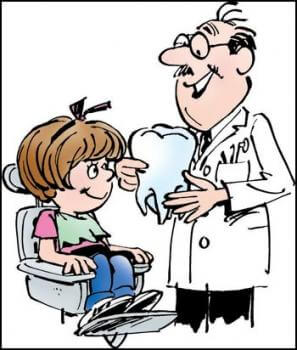Going to the doctor or dentist can be an extremely stressful event for a parent as well as a child. There are many factors that can dis-regulate a child and/or bring on a feeling of anxiety. For example, the unstructured time in the waiting room along with the presence of unfamiliar faces can be difficult for any child especially those with special needs. In addition, the examination room and equipment used can be intimidating and overwhelming. Furthermore, negative experiences from the past and associations with pain can influence future associations and fear of the experience. The key to a successful visit to the doctor or dentist is preparation!
Utilize a Calendar
Upon scheduling an appointment with the doctor or dentist, make a special notation on your family or child’s personal calendar and countdown the days until the appointment. At The Phoenix Center, schedules are extremely important to our students. Schedules help them anticipate an upcoming event, identify when a change is going to occur and remain on task.
Be Creative When It Comes to Scheduling
Be mindful of your child’s schedule; try not to disrupt their routine. Going to the doctor or dentist is stressful enough; try not to compound it with further frustration or anxiety due to a change in routine. In addition, if it works with your child’s schedule, try to schedule the first or last appointment of the day… by doing this you may be able to cut-down on the wait time.
Don’t Keep Secrets
By preparing your child for their upcoming appointment, you may be able to avoid some of the negative feelings that coincide with a visit to the doctor or dentist. Be sure to talk to your child about the purpose of the visit in advance. Use visual supports, social stories, pretend play and even ‘apps’ on the iPad, iTouch or iPhone to help your child learn what to expect. In addition, describe the sensations that your child may feel (e.g., cold stethoscope, loud toothbrush) and show them how the doctor or dentist will use different equipment.
Encourage Your Child to Express Their Feelings.
It is extremely important that your child feels that you understand how they are feeling. Identifying feelings is difficult for our children; therefore, try using visual supports to help your child understand and identify the different ways they may feel. If your child uses total communication, make sure they have access to the right tools to try to express themselves (i.e., picture symbols, communication boards, voice output device).
Introduce Key People and Places Prior to the Visit
Use photographs to introduce the doctor, dentist, nurse, and/or hygienist and to show them where they will be going. Your doctor or dentist may have a profile on a website or Facebook page where you can download pictures. If you are unable to locate the appropriate pictures online, you can request pictures of the staff and the examination rooms directly from the doctor or dentist’s office.
Always Follow-Up
After the appointment talk to your child about what they experienced. Ask questions and let your child talk about their experience. Use visual supports to facilitate accurate answers and feelings from your child. Allow your child to talk about what they liked and what they didn’t. If your child had a difficult time, be sure to highlight the positives and not the negatives.
Resources
Dental Tool Kit
http://www.autismspeaks.org/family-services/tool-kits/dental-tool-kit
A Guide for Having Blood Draw
http://www.autismspeaks.org/sites/default/files/documents/atn/blood-draw-parent.pdf
Websites
Nick Jr.
PBS Kids
http://pbskids.org/sesame/games/elmo-goes-doctor/
Apps
Toca Doctor
https://itunes.apple.com/us/app/toca-doctor/id424209938?mt=8&ls=1
Tiny Dentist
https://itunes.apple.com/us/app/tiny-dentist/id561690275?mt=8

